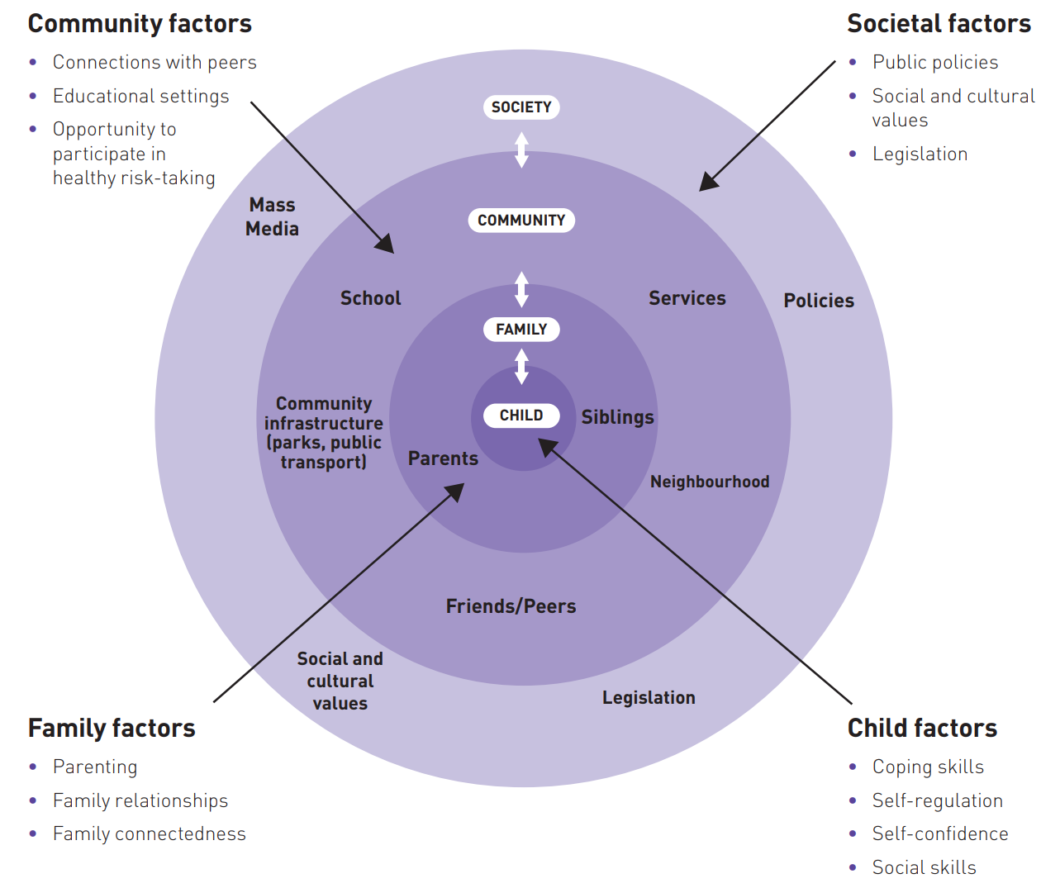Resilience is a word we often hear within the context of early learning, education, raising children, and life in general, and for good reason. Being resilient is really important for everyone, regardless of age, as it helps us to be happier, healthier and less stressed people, which is always a positive thing!
What is resilience?
In the most basic terms, resilience refers to one’s capacity to cope with and recover from difficulties they encounter. For children, resilience can be interpreted as their ability to bounce back from the obstacles or challenges they come across and generally manage the ups and downs of life.
During childhood, common challenges faced might include moving house, starting kindy, going to a new school or dealing with the death of a loved one, and resilience is an incredibly helpful tool for children to have in their skill set for coping with adversity.
Resilience is not a skill that children either have or do not have; rather it exists on a continuum and is developed through a variety of processes that involve individual and environmental factors. It is crucial to remember that resilience is the ability to deal with adverse experiences, not freedom from negative emotions, and it is something that can be learnt by every person.
Why is resilience important?
Resilience is an essential life skill, and it is really important for the support it provides to our mental health. For children, having greater resilience is a key factor in their ability to manage the stress triggered by difficult events and hence reduce their chances of developing mental health conditions like anxiety.
Being resilient helps equip children to deal with adversity and overcome the obstacles they will inevitably face, and develops a foundation of healthy coping strategies that will enable them to handle future hardships later on in life.
Where does resilience come from?
As is often the case with abstract concepts like resilience, it is usually relatively easy to define them but can be difficult to understand where they come from and how to develop them. A person’s resilience is shaped by a number of factors to do with both nature and nurture.
Resilience is influenced by a person’s nature or the individual characteristics they are born with, including their genetics and temperment, and also the environment they were raised in, which encompasses their culture, parents, family, community and experiences.
The diagram below is from Beyond Blue and represents the interaction between the factors that influence a child’s experiences of and reactions to adversity.

A helpful analogy for resilience is that of a boat. Imagine a boat sailing on the sea that encounters a storm. The storm is a representation of life’s challenges, and the boat represents an individual’s capacity to handle this adversity. It is easy to understand that different types of boats will respond differently to the same storm, and that some are better equipped to deal with it than others; the same goes for the way different children that encounter the same difficult situation will respond.
The boat’s capacity to withstand the storm depends on a multitude of factors, including:
- The captain (the child)
- The crew (the child’s support system, i.e. their family, friends and educators)
- The equipment the crew have (the child’s coping strategies)
- The type of boat (the child’s individual characteristics)
- The severity and duration of the storm (the nature and length of the difficult event)
Evidently, all of these factors play an important role in helping the boat to endure the storm, and one alone will not ensure that it makes it through.
Fortunately, it is never to early or too late to start building your child’s resilience, and there are numerous things you can do as a parent, carer or other significant person in a child’s life to help them develop resilience.
How can you build resilience in your child?
The key to building resilience in your child’s early years lies in five key areas;
- Understanding and being educated about resilience
- Building, strengthening and promoting supportive relationships between your child and others, including their peers and the adults in their lives
- Developing their personal independence by focusing on autonomy and responsibility
- Supporting their emotional coping skills by teaching them to identify, express and manage their emotions
- Creating opportunities for personal challenge to build confidence
Building supportive relationships
Positive, high-quality relationships are incredibly valuable to building resilience in your child’s early years. Here are a few ways you can promote this:
- Encourage children in a supportive way when they are involved in a challenging activity or task. Acknowledge that they are finding it difficult, and encourage them to talk with you about how it makes them feel. This not only strengthens their relationship with and trust in you, as they will feel valued and supported, but also helps them to build confidence through solving problems on their own.
- Facilitate environments that promote a strong sense of belonging. Feeling secure in their position in a group, whether it be in a family setting or with their friends, helps children to strengthen their support network and promotes self-worth.
Developing children’s independence
Autonomy and responsibility are fundamental in building resilience in children. Below are some suggestions for promoting independence in your child:
- Provide children with opportunities to practice problem-solving in an environment that sets them up for success. This is a great skill for kids to practice by themselves or in a group, and can be as simple as encouraging them to build a tower of blocks, and then brainstorming strategies to make it more stable.
- Support children to make meaningful decisions about their own lives, like what clothes they would like to wear, or what activity they would like to engage in. Facilitating children’s confidence in making decisions from an early age is a great way to develop autonomy and responsibility.
Supporting the development of emotional coping skills
Emotional coping skills support children’s resilience as they aid them in recognising and responding to emotions in a healthy way. How to support your child’s emotional coping skills:
- Acknowledge the emotion the child is displaying in the moment, especially if it is a negative one. For example, saying things like “I can see that you’re feeling sad” or “I understand that you’re angry” can help them to feel heard. Additionally, naming emotions aids children in being able to identify and communicate how they are feeling.
- Support children to develop healthy thinking patterns around emotions that will help them respond to difficult situations. Things like positive self-talk, positive affirmations and an optimistic attitude are all excellent.
Creating opportunities for personal challenge
Letting children take healthy risks and navigate challenging situations is really important for building their self-confidence, which is instrumental in raising a resilient child. Here are a couple of ideas for building confidence through challenge:
- Letting children have free-play time and allowing them to explore their limits in a less structured environment encourages them to problem-solve as issues arrive which supports their resilience.
- Proving opportunities for children to face obstacles helps build their confidence in tackling adversity. This can be as simple as going on a bushwalk and working out how to cross a stream or climb over a boulder, or them loosing a board game (remember to discuss that ‘loosing’, ‘failing’ and ‘making mistakes’ are all okay!).
On the whole, resilience is a crucial asset for children to develop, as it will help them navigate the obstacles they are faced with now and provide a strong foundation to support them growing into healthy, happy individuals in the future.
Creating a strong support network, both in the home and the community, is vital for your child’s development of self-confidence, independence and emotional coping skills, and we aim to foster this everyday at Choklits Child Care through the positive relationships children develop here with their educators and their peers. We hope you enjoyed this blog on building resilience in your child’s early years, and learnt something new about the attributes that support its development!



